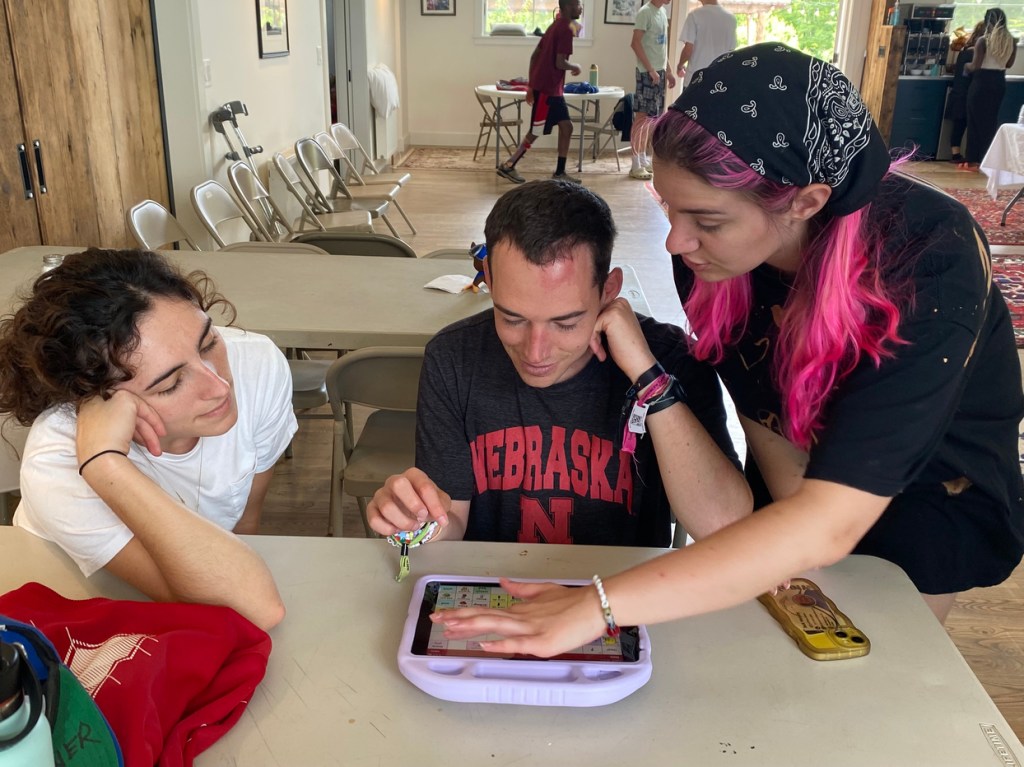She’s a pro cyclist racing on weekends, but this Northeastern grad says co-ops put her business career in motion
Helena Gilbert-Snyder graduated with a business degree from D’Amore-McKim School of Business and credits Northeastern for preparing her “for life after college.”
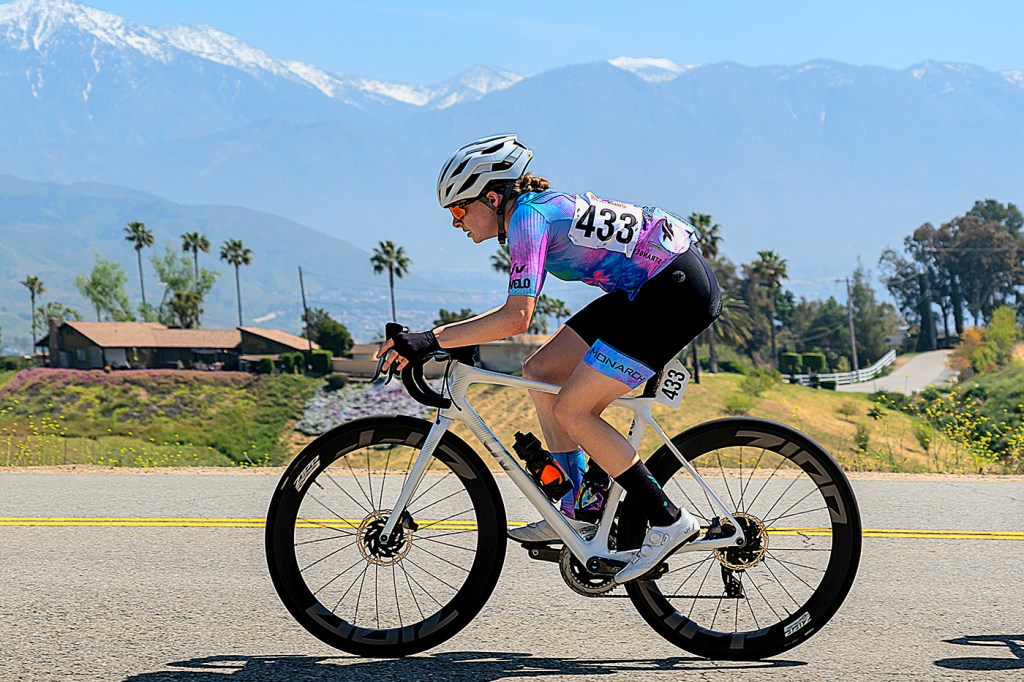
Halfway through the 100-mile mountain bike race deep in the rugged San Juan Mountains of the Rockies near Telluride, Colorado, the rain came down in buckets — blowing sideways — and the thunder and lightning kicked up.
Helena Gilbert-Snyder was racing along in third place in the women’s pro category of the Telluride 100 and determined to hang on to her position despite the severe weather that can roll in quickly in the Rocky Mountains.
“It was the hardest race I’ve ever done, hands down, no comparison. Honestly, it’s just the most memorable race. I don’t think I’ve ever been so absolutely exhausted mentally and physically at the end of an event than that one,” says Gilbert-Snyder, who graduated from Northeastern University in 2021, the same year as that weather-stricken event.
“My hands were so cold I couldn’t shift my gears. I couldn’t eat anything ’cause I couldn’t use my hands to open anything. There was lightning and thunder. It was like 35 degrees,” Gilbert-Snyder says. “It’s a favorite in that I don’t think I’ve ever pushed myself as hard in the same way or finished a race feeling as spent as that one.”
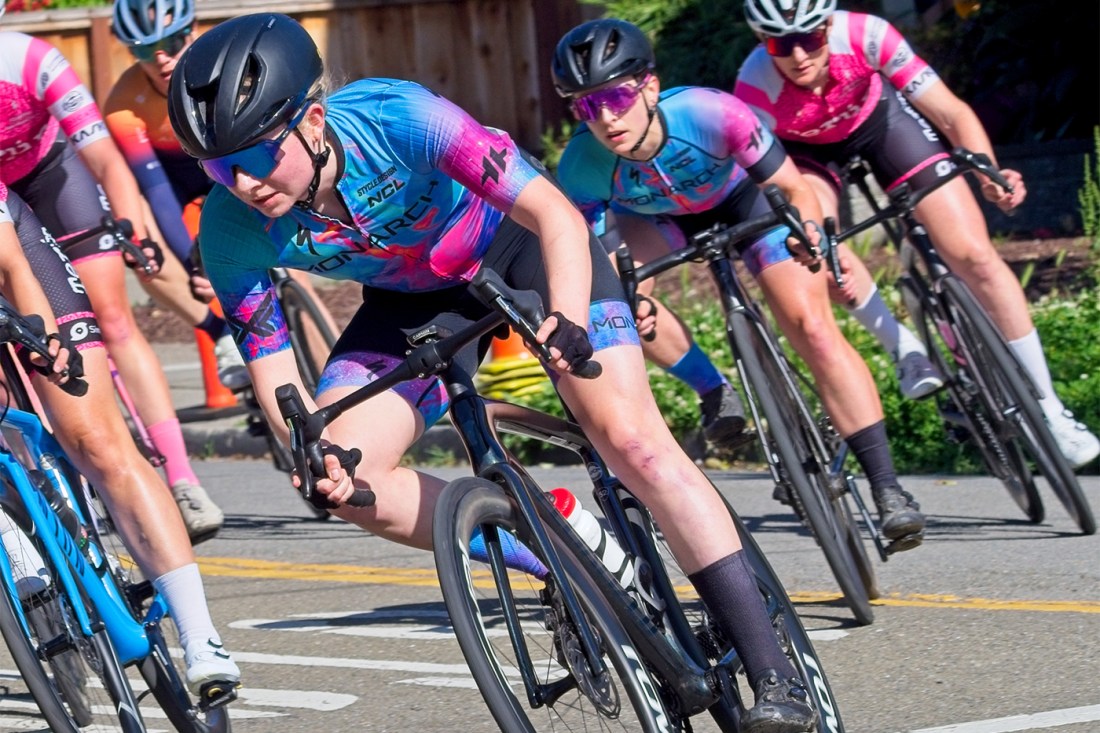
Despite the conditions, Gilbert-Snyder hung on for third place, one of many podium finishes for the Northeastern grad over six seasons of elite racing.
She first took up mountain biking her senior year at El Cerrito High School in Northern California and went on to win the league championship. While she was winning every race that senior season she was also selecting a university to attend the next school year, and she went 3,000 miles across the country to find what she was looking for.
Gilbert-Snyder says she chose Northeastern for the co-ops, the experiential learning.
“That was the selling point. ‘Here are these co-ops and we will prepare you for life after college. Our goal in these four or five years is to get you ready for the rest of your life,’” she says of Northeastern. “Everybody says this, but the co-op program was actually what determined me choosing Northeastern.”
“One of my biggest focuses when I was choosing a college was that I didn’t want to graduate college and not know what I wanted to do with my life. I wanted to be prepared to be an adult in the working world, have pathways for that and have connections. And Northeastern really did prepare me to be a fully functioning adult right from graduation,” Gilbert-Snyder says.
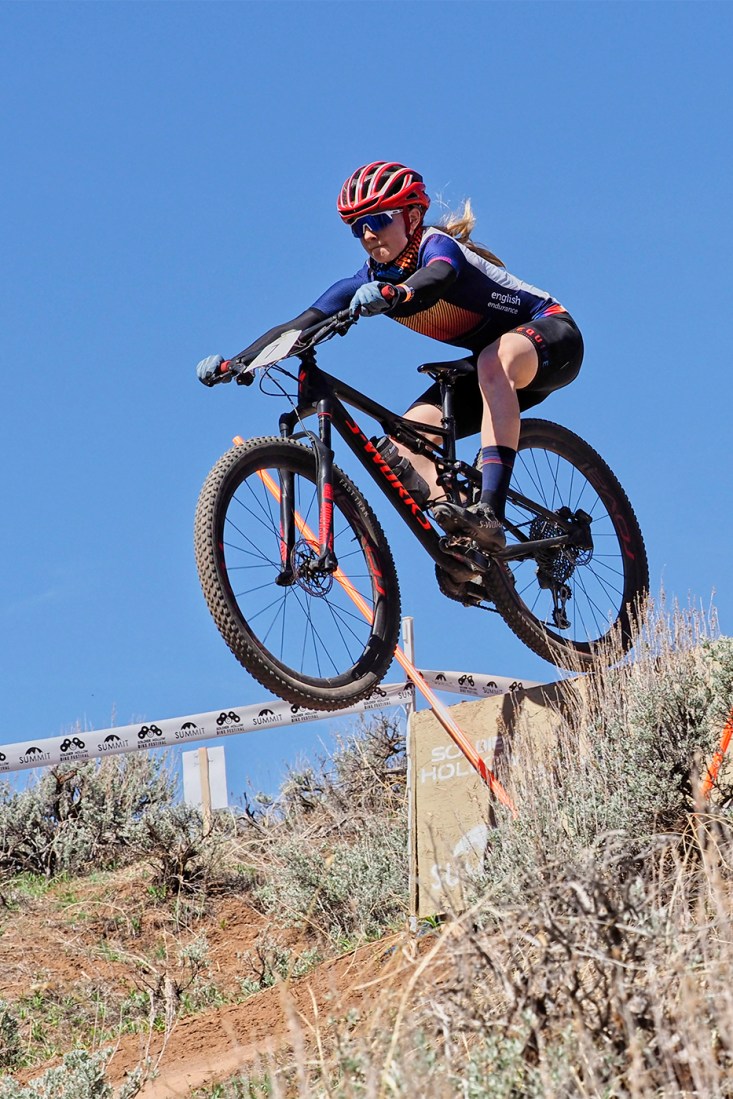
Before graduating with a business degree from D’Amore-McKim School of Business, Gilbert-Snyder worked at two co-ops. The first was at L.E.K. Consulting in San Francisco as a case team assistant. Her second co-op became her full-time job after graduation.
As her enthusiasm for cycling accelerated, Gilbert-Snyder thought she would combine her two interests — business finance and bikes — in her second co-op. She was able to secure a co-op at Specialized, one of the largest bicycle manufacturing companies in the world.
Working in the Specialized business department at the company’s headquarters in Morgan Hill, California, she performed data analysis trying to improve the customer experience during her co-op in the spring semester of 2020. When the COVID-19 pandemic hit, she worked remotely.
Gilbert-Snyder continued to work part time for Specialized after her co-op and throughout her fourth year at Northeastern. Upon graduation in spring 2021, she was offered a full-time position and currently works in financial planning and analysis.
“I work as a financial analyst in the USA market, so all of my work is U.S. focused. I do a lot of work understanding market dynamics, our sales programs — are they effective, are they not effective?” she says.
When Gilbert-Snyder is not crunching numbers and analyzing sales in the cycling business by day, she is riding or racing a bike after work and on weekends.
Gilbert-Snyder’s interest in cycling became serious during her second year at Northeastern. She brought her Canyon Inflite cyclocross bike to Boston from home in Northern California, and she rode it to get around campus and trained on the roads outside Boston.
She would ride through Cambridge and head northwest out to the airport at Hanscom Field in Bedford and back to campus, loops that would be 70 to 100 miles.
“I just remember how much I loved it in the fall when there’d be like apple trees and the leaves were changing color and there’s small roads, kinda like country roads with all these old houses. I probably could have ridden through those roads forever during the fall,” she said.
“It is so gorgeous,” she continued. “The roads are so beautiful. Probably one of the highlights of cycling in Boston are the fall months, out in the open space where all the trees show their colors.”
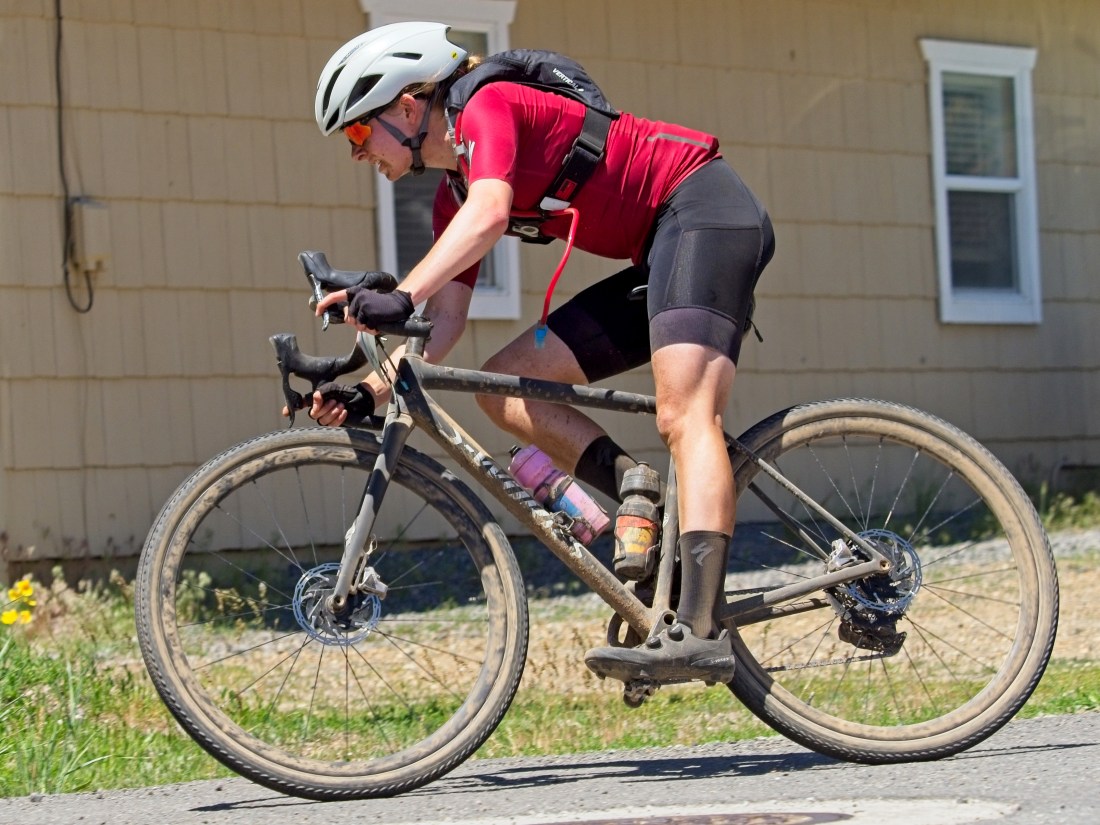
Though she did not bring a mountain bike to campus during her second year at Northeastern, Gilbert-Snyder joined the university’s cycling club and competed with the team. Her teammates, she said, shared their bikes at mountain bike races.
“There were some awesome teammates who were like, ‘You should totally come race and just use my bike.’ So I would just hop on random people’s bikes for these weekends, which was great. It was just fun. The team was super, just like, ‘Oh, totally come, come and race. Like, we’ll hook you up,’” she said.
Gilbert-Snyder competed in USA Cycling’s Mountain Bike Nationals after her second year at Northeastern and finished sixth in the U23 women’s division. That fall, during her third year, she took sixth place in the collegiate Nationals in cross country and grabbed a bronze medal with third place in the short track race.
In addition to mountain biking and gravel riding, she also competes at the pro level in road cycling races, and has had many podium finishes.
“My strengths are punchy climbs. A rolling course that has those climbs that are under two minutes long is something that I really enjoy,” she said. “I don’t super love really long sustained climbs, but I do like the short hard efforts, repeated short hard efforts, and that’s the mountain biker in me talking, I think, because that’s all mountain biking is.”
Gilbert-Snyder is also an ambassador for the sport of cycling. She works with a couple of high school mountain bike teams in the Bay Area of Northern California, speaks at fundraising events and is a member of the board of directors of the regional association of USA Cycling.
Featured Posts
In addition, she formed an elite female cycling team — Monarch Racing — and runs clinics for young riders.
“The intention of all of these is to both show girls that they have an opportunity to do this sport and there’s like a future for them in it if they want it, and also support them,” she said.
“Giving them an environment where they can talk to older women and see their peers doing it, having fun, being successful, whatever that means for them,” she said. “The goal is to keep them in the sport, increase their numbers in the sport, because there’s no reason that cycling shouldn’t have just as many girls, women, as men and boys. There’s zero reason that that should happen. So, we have to give them an environment that is supportive and believes in them and it gives them the opportunity to be competitive, to learn, in safe and supportive ways.”
The Monarch team, which currently has about 10 members with sponsorships that provide financial and equipment support, has achieved success at the regional and national level, she said.
On the international level, Gilbert-Snyder recently competed in the grueling eight-day Absa Cape Epic mountain bike stage race on the challenging terrain of South Africa’s Western Cape, covering 435 miles with over 52,000 feet of climbing. She raced in the mixed team category with Randy Egues and they finished in ninth place with a time of just over 37 hours.
Though she has competed in many road cycling events the last couple of years, Gilbert-Snyder plans to spend a little more time on the mountain bike this year as she aims to compete in the UCI Mountain Bike Marathon World Championships to be held at Snowshoe Mountain Resort in West Virginia.
“It’s usually somewhere in Europe. So the fact that it’s in the U.S., it’s kind of like oh, that would be cool to go to. So we will see,” she said.






